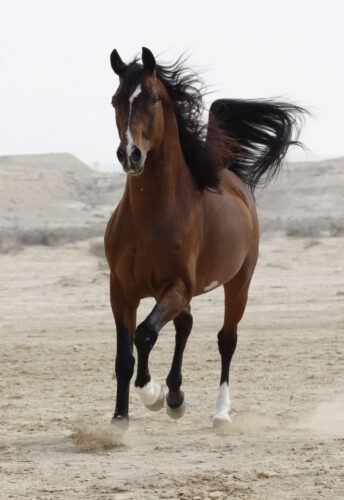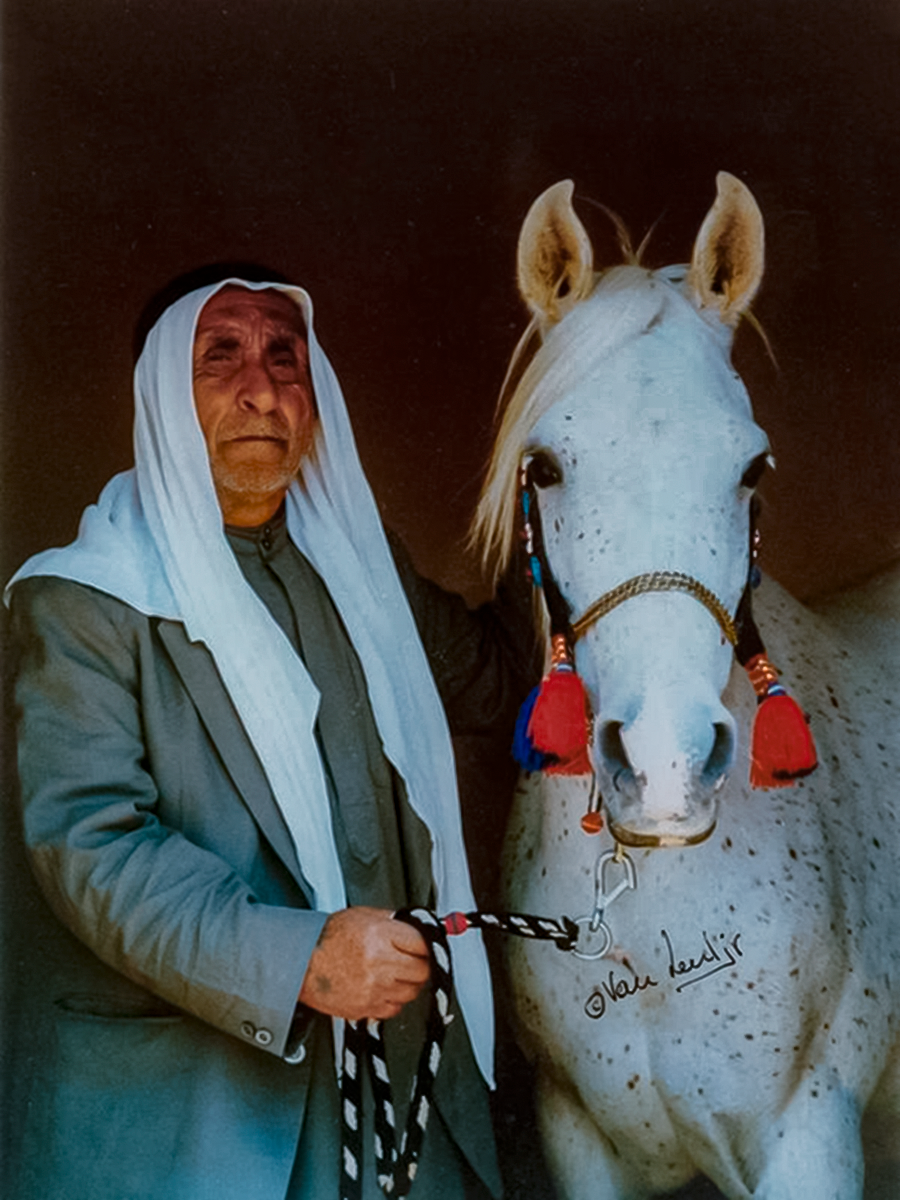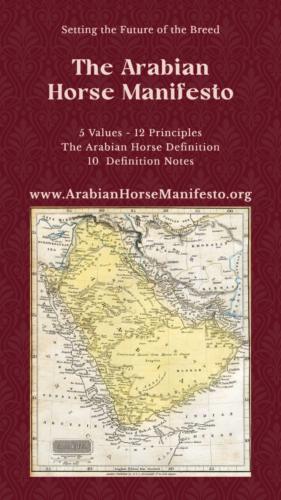"AL-ITAQ views itself as a bridge between tradition and modernity, past and future, and East and West."
AL-ITAQ was founded to address a number of acute threats the Arabian horse is facing in modern times .
The relentless pace of modernization over the last hundred years has radically altered the Arab Bedouin society and the lifestyle that gave rise to the Arabian horse. In parallel, there has been a major wave of globalization and modernization of the Arabian horse. Despite the many positive sides and the role the Arabian horse played as a cultural bridge between the East and West, the globalization and modernization process has led to the breed heritage largely being discontinued in its homeland and that traditions were not carried on in practice to the next generations. There is general lack of awareness among the younger Arabs of their traditional equestrian heritage. Additionally, there is a broad diffusion of Western concepts and practices about the Arabian horse in its homeland.

Another symptom is the loss of genetic and phenotypical diversity resulting from those Western-centric breeding standards, which is threatening the health and sustainability of the breed. It is largely perceived that the breed does not enjoy the same level of quality and versatility it had a century ago. In parallel, modern initiatives and frameworks for sustaining the breed did not provide any universally agreed standards that define an Arabian horse on the basis of Arab Bedouin culture. After many decades of organizational efforts, limited success has been achieved to safeguard the Arabian horse integrity and original characteristics, and several Arabian horse groups with legitimate credentials and original qualities are still largely isolated and marginalized, facing the danger of extinction. On the other hand, modernity is providing us with big potential in the terms of genetic science and scientific advances in general; a great opportunity still to be captured for supporting the breed continuity.
Wide conviction is there that we need to revert back to the source, have more active participation of the people of the breed, utilize modern science, and create space for the authentic Arabian horse everywhere to flourish. Al-Itaq is driven by the appreciation for both the social values of the Arab Bedouins and the role of modern Western equine science. AL-ITAQ views itself as a bridge between tradition and modernity, past and future, and East and West.
The Global Arabian horse Council⸻
Message From The Board
The Arab horse is currently at a critical juncture of its millennia old history. Over the last hundred years, the Arabian horse has witnessed a tide of fundamental transformations of the environmental and social context that has shaped its unique qualities. Bedouin nomadic life no longer exists. Today, with very few exceptions, the Arab horse lives in farms and stables all over the world, rather than around the tents of the Bedouins of Arabia. This global reach raises the question of the impact of this transformation on the breed’s identity and defining qualities.
The Arab horse was often the subject of efforts to safeguard its authenticity and identity, if any clear definition of these concepts existed at all. Numerous attempts to establish organizations, catalogues, studbooks and registries provided only a partial and often Western-centric understanding of the breed’s identity. Few of such efforts took into account the cultural roots of the breed in its original homeland of Arabia.
Al-Itaq is the collective effort of many benefactors and supporters. All have deep understanding of the breed’s cultural aspects, stemming either from their identities as Arab and/or Bedouin, or from a respect for Bedouin horse-breeding values. They sincerely build this initiative on top of previous efforts by existing organizations and independent researchers.
We at Al-Itaq look forward with a lot of hope and determination to uniting efforts and establishing constructive collaboration with all Arabian horse lovers around the world toward the prosperity of this magnificent breed.


Weaving Tradition, Saddlery, and Arabian Horses in Desert Culture
The Al-Itaq logo is derived from SADU weaving and therefore has the same desert tradition.
Bedouin weaving and the Arabian horse have a lot in common: very many strings and cords, woven one with the other: not only representing Bedouin traditional saddlery, tents and carpets, but also symbolizing the ancient breeding system of strains (rasan and marbat) that is tightly interwoven with the life of desert tribes and clans, breeders, and famous warriors.
From Supporters
We support this effort to enhance the breeding practices of the Arabian horse, preserve the breed authenticity, and secure its future.
"This is among the most significant and badly needed developments in molding and merging true, and accurate historical thinking about the factual background of our hotblooded horses yet. It is clear that it will be a huge help in guiding a factual framework toward a proper understanding of the historical nature and future pathways of Asil Arabian horse breeding, and thus do much to save the breed."

"I find the original Bedouin house to be breathtaking. Many of the modern horses have conformational errors that the Bedouins would not have tolerated. I grew up with mares that could be trusted with small children. My stallion babysat my daughter. I think the Bedouins would have approved. There is more to a horse than winning in a show ring. Heart and willingness to be a partner. Solid conformation that will last many, many years. These are goals I can support. A return to the foundation of the Arabian horse."
"Here in Australia Arabians stallions were once made available at government research farms to improve stock horses, and they made a valuable contribution. Now we think of them as freaks and poodles- what a shame. I rode a research station bred mare as a kid and played open grade polocrosse, camp drafted, all women's rodeo events, endurance and stock work. Work all day, good head carriage and no fizz. Please bring these horses back before it is too late."

Background
Early 2022, an initiative by 32 founders from different parts of the world, East and West, including a majority of Arab and Bedouin figures, was launched under the name the Arabian Horse Manifesto. The initiative aimed at building consensus over a set of key values and principles to govern the breed preservation efforts. In addition, the initiative developed an actionable definition based on the authentic Arab Bedouin concepts supported by a set of definition notes that allow for practical implementation of the definition.
Al-Itaq is the next stage of the Manifesto initiative. It capitalizes on its consensus-building approach, and inherits its definition and principles. The same group of founders, in addition to many other supporters, continue to support Al-Itaq as a global council for the preservation and prosperity of the authentic 'atiq Arabian horse.
Al-Itaq was legally incorporated in 2023 by a board of directors of Arabic-speaking majority and participants from the rest of the world.
